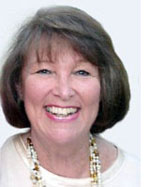| |
|


THE VIEW FROM JINSA
Is U.S. impinging on Israeli sovereignty with three generals assigned to Mideast?
By Shoshana Bryen
 WASHINGTON, D.C.—
What are three American generals doing in the middle of Israel's security decision-making process? The fact that they are intimately involved in Palestinian affairs as well as with Israel bodes ill for the U.S.-Israel security relationship and Israel's sovereign right to protect its citizens against a threat that respects no boundaries. The fact that Israel permits them to be in the middle bodes ill for the same things. WASHINGTON, D.C.—
What are three American generals doing in the middle of Israel's security decision-making process? The fact that they are intimately involved in Palestinian affairs as well as with Israel bodes ill for the U.S.-Israel security relationship and Israel's sovereign right to protect its citizens against a threat that respects no boundaries. The fact that Israel permits them to be in the middle bodes ill for the same things.
One general is training the Palestinian army/police force/praetorian guard. Another was tasked after Annapolis with judging Israeli and Palestinian compliance with the Road Map. A third is charged with "coordinating security" between Israel and the Palestinians. Excellent, capable, respected American military officers - given an odd series of jobs to do.
We ask, as we always seem to, what is the mission, the American end game? What is it that the United States government wants to accomplish?
The Secretary of State and the President have been clear that the United States wants to arrange life in the area so the Palestinians will provide security for Israel and Israel will withdraw from the West Bank, paving the way for the Palestinian state in which the Administration is heavily invested. This is a political goal, not a military mission, and in order to try to achieve it, the United States has overridden Israel's sovereign right to determine its own security parameters. Our government has engaged military officers so that Palestinians can "help" Israel decide that it is "safe enough" to leave. American military officers should not be asked to do that.
But not only that - or not even that. The Palestinian Authority has not accepted a mission to secure territory on behalf of Israel's citizens. Abu Mazen has not agreed to "dismantle the terrorist infrastructure" which is his obligation to Israel under the Road Map. (And no, Israeli houses do not rise to the same level of importance and there is no comparison between Israel's lapses on the Road Map and Palestinian lapses.) And even if they did, who judges whether and when they are capable? Who pays if the judge isn't Israel and the judge is wrong?
Israel has traditionally asked the United States only for the tools to defend itself, not for military personnel. The successes the IDF has achieved in full-scale war, low intensity conflict and against terrorist attacks are the result of decisions made and carried out in Israel by Israelis - the Security Fence comes quickly to mind. The lack of success in some of those same areas, particularly in responding to an increasingly widespread war of attrition emanating from Gaza, is also the responsibility of the Israeli government.
U.S.-Israel security cooperation on tactics and training in low intensity conflict, urban warfare, intelligence, missile defense, homeland security and first response have made both countries safer without impinging on the sovereign obligations of either. It was a more than workable arrangement, respecting the capabilities and sovereignty of both. It should have been left that way.


THE JEWISH CITIZEN
An Irish shpiel for St. Patrick's Day
By Donald H. Harrison
 SAN DIEGO—Every once in a while, the lunar calendar of the Hebrew year and the Gregorian solar calendar align in such a way that Purim and another holiday for telling tall tales, St. Patrick's Day, fall within the same week of merrymaking. SAN DIEGO—Every once in a while, the lunar calendar of the Hebrew year and the Gregorian solar calendar align in such a way that Purim and another holiday for telling tall tales, St. Patrick's Day, fall within the same week of merrymaking.
Having composed a Purim shpiel the other day, I dared myself—in fact, I double Adar-ed myself, to see if I could follow suit in the spirit of St. Patrick's Day, when they say that the whole world is Irish.
So, today, celebrating St. Patrick's Day, I offer:
The Irish-Jewish Legend of Paul Shapiro
The man named Paul Shapiro
Is quite a Jewish hero.
To Judaism he’s true.
Even while drinking a few
Of those green St. Paddy’s beers
Shouting “L’chaim! And cheers!”
Paul, imbibing for a while,
Heard the green leprechaun, Kyle,
Tell drinkers right then and there
Fond wishes—he’d grant their share.
One guy wanted a fine wife
With whom to build a new life;
A gal asked for a young man
Handsome, urbane, rich and tan.
And then Kyle looked at Paul.
“Aren’t you, just like them all,
Going to tell your desire,
One setting your heart on fire?”
Said Paul: “Machaiah for me?
Irish, I would like to be!
But, Kyle, please stay that wish,
If I can’t remain Jewish!
“To tree of life (hic!) hold fast
Even if I’ve slipped in past.
Though St. Patrick’s Day is nice,
I’d long for Havdalah’s spice.
“I’d miss the peace of Shabbat
When keeping it, I am not.
Judaism, I can’t lose,
So your offer I refuse.”
"Don't you 9-1-1 dial,"
Said Kyle with a leprechaun smile,
There is nothing to prevent
A union that Heaven meant
“Paul, don’t yourself be troublin’
The Lord Mayor of Dublin,
Robert Briscoe, was a Jew,
And a very good one, too”
“Well, now,” said Paul, “that is great--
“Irish and Jewish, my fate!
“I only wish Saint Patrick
Came to earth a lot more quick
“Preventing premature wakes,
He rid Ireland of snakes
Him, all of us were need-in’
In the Garden of Eden!
“Why, Kyle, just imagine
Before knowledge was fashion,
Back then, people weren’t fake--
And my head (hic) would not ache.”
This tale, I aver, is true—
Now, he’s Paul O’Shapiroo
—Donald H. Harrison, San Diego, March 17, 2008
|



PEOPLE OF THE BOOKS
Kugel explores scholars' biblical criticism
How to Read the Bible: A Guide to Scripture, Then and Now by James L Kugel; Free Press, New York; ISBN 978-0-7432-3586-0, 2007, $35.00, 689 pages, plus 78 pages of endnotes
By Fred Reiss, Ed.D
  WINCHESTER, California—The Bible is the holiest of books for 2.1 billion Christians and 14 million Jews. More than 1.5 billion Muslims deem the holy Koran to be a continuation of the Old and New Testaments. Jewish tradition says that Moses, at God’s direction, wrote the Pentateuch, the Five Books of Moses, no later than about 1400 B.C.E. The authors of the books of the prophets and the various scrolls that make up the Writings composed them between 1400 B.C.E. and 450 B.C.E. WINCHESTER, California—The Bible is the holiest of books for 2.1 billion Christians and 14 million Jews. More than 1.5 billion Muslims deem the holy Koran to be a continuation of the Old and New Testaments. Jewish tradition says that Moses, at God’s direction, wrote the Pentateuch, the Five Books of Moses, no later than about 1400 B.C.E. The authors of the books of the prophets and the various scrolls that make up the Writings composed them between 1400 B.C.E. and 450 B.C.E.
Yet, James L. Kugel in his newest book, How to Read the Bible, asserts the Bible is not divinely inspired and the books of the prophets are not even written by the authors who bear their names.
Kugel presents a well-written and comprehensive analysis of many biblical stories; covering nearly every book of the Bible and though highly footnoted, it is comprehensible to both scholar and layman alike.
How to Read the Bible begins by drawing on the work of mid-nineteenth century German theologian, Julius Wellhausen, who proposed that the Pentateuch had more that one writer. After extensive linguistic analysis, Wellhausen concluded that there were at least four different authors. Author J consistently used the Hebrew letters that correspond to the English letters Y-H-V-H (Y is spelled in German with a J) for the name of God. Author E preferred another Hebrew name for God, Elohim. P’s style showed that he wrote the sections that emphasized chronology and laws, and D wrote the Book of Deuteronomy.
In addition to using the word YHVH for God’s name, author J calls Sinai God’s mountain and stresses Southern Israel. In contrast, E uses Elohim (a word that means god or gods, lower case), calls Mt. Horeb God’s mountain and highlights Northern Israel. Among other things, author P emphasizes Southern Israel and focuses on genealogy and laws. Finally, author D refers to God as YHVH and accentuates the centrality of prayer in Jerusalem. An unknown redactor, about 500 B.C.E., united all the material written by J, E, P, and D. This is why, according to Wellhausen’s hypothesis, the Bible has two creation stories (Genesis 1:1 – 2:4 and 2:4 – 2:25), two stories of the flood (Genesis 6:5-8:22 and 6:9-8:19, the two accounts are intertwined), two versions of the Ten Commandments (Exodus 20:1-14 and Deuteronomy 5:6-18), and so on. Wellhausen’s theory became known as the Documentary Hypothesis, which has survived scholarly scrutiny over the last 150 years, and is generally accepted by all but the most ardent literalists, such as Orthodox Jews and Fundamentalist and Evangelical Christians.
Kugel insists that these anonymous authors, as well as those who wrote after the Israelites settled Canaan, drew on and adopted folklore known from the distant past, including both Jewish oral history, narratives that were common knowledge in the Middle/Near East and historical material preserved by both kings and priests. The biblical stories were written, he asserts, in order to explain the authors’/editors’ present based on past events (etiological narratives) or to make specific points (schematic narratives).
These anonymous authors used etiological narratives to explain to their contemporaries, for example, why different groups of Semites spoke different languages (Tower of Babel), to explain why the Israelites (fathered by Jacob) and the Edomites (fathered by Esau) were closely related by often at war with each other, to explain why Rahab’s (the prostitute who sheltered Joshua and his men when they spied on Jericho) relatives (foreigners) stilled lived in Canaan, and why the tribe of Jacob’s eldest son, Reuben, produced no King (see Genesis 49:3-4). Likewise, they used schematic narratives to tell what happens if you disobey God’s command (Adam and Eve, Lot’s wife), murder (Cain and Abel), or display general wickedness (Noah and the flood, Sodom and Gomorrah). The authors, Kugel asserts, never intended to predict the future; this idea surfaces later with another group of editors.
According to Kugel, between 300 B.C.E. and 200 C.E., mostly unknown “ancient interpreters” construed biblical stories in ways the original authors never intended. They mistakenly read the Bible with four assumptions: (1) the Bible is essentially cryptic, (2) the Bible is a book of lessons aimed at readers in their own day, (3) the Bible contains no contradictions, and (4) the Bible was given by God. In addition, after the death of Jesus, early Christian interpreters, using typological narratives, that is, reinterpreting the Old Testament to predict future events, showed that many of its verses predicted Jesus as the Messiah. For example, based on assumption 3, why would God test Abraham when He knew the outcome in advance? To eliminate the contradiction, the interpreters made an analogy between Abraham and Job. They said that God knew the outcome, but He had to demonstrate to Satan Abraham’s loyalty to God through a variety of tests. Based on assumption 2, the ancient interpreters changed the story of Dinah’s rape and the subsequent revenge by her brothers to be as an admonition to the Jewish nation not to intermarry.
In addition, the ancient interpreters saw biblical characters as either all good or all bad. They considered Jacob “good” although he stole his brother’s birthright and lied to his father. They saw King David as a “good” person, brushing aside his adultery and other wrong doings, but considered Balaam “bad,” even though he spoke God’s words and blessed the Israelites. They altered the original meaning of the Song of Songs from a love story between a man and woman to God’s love for Israel.
Kugel is a practicing Orthodox Jew; so one would expect him to fall squarely on the side of the ancient interpreters, the message that congregants and parishioners receive at sermons during Sabbath services. This is not the case. In each chapter, he gives the reader a balanced approach between the original authors, ancient interpreters and modern biblical scholarship, but he clearly sides with modern scholarship.
In the chapter titled “Moses in Egypt,” Kugel begins by faithfully retelling the narrative of Moses’ exploits while living in the Pharaoh’s palace. He then follows this with stories that arose from ancient interpreters, such as Josephus, Philo and book of Acts. From here he moves into biblical scholarship by digressing into the fascinating birth of Egyptology and telling the story of the discovery and translation of the Rosetta stone, the archeology revealing the authenticity of the Exodus, the ‘Apiru, an enslaved people in Egypt and an analogy between the birth of Moses and the legend, written in cuneiform, of the birth of Sargon I of Agade.
Kugel did not write this book to make fundamentalists become atheists, or turn believers into disbelievers. From his own admission, he is well aware that the human mind has the capacity to compartmentalize science and religion. He also knows that over time religion assimilates scientific ideas. Neither the Copernican revolution, which contradicts biblical cosmology, nor the publication of the Origin of the Species, which powerfully explains the evolution of life on earth without God, brought an end to religion.
Instead, Kugel wants his readers to come away with a greater appreciation for the Bible. He believes that by understanding what the ancient interpreters wrote, we will be able to peel away the newer and transient meanings found in the Bible and come to understand its books at a deeper level, the level of what the original authors were communicating to the reader, “How to serve God.”


L.A. BEAT
Dietrich, Chevalier subjects of new musical
By Cynthia Citron
 SANTA MONICA, California—Remember the ballad “I Want a Sunday Kind of Love”? Well, playwright Jerry Mayer has the perfect answer for that. His celebration of the love affair between two legendary entertainers, Marlene Dietrich and Maurice Chevalier, plays every Sunday at the Santa Monica Playhouse. And trust me, you’ll love it! SANTA MONICA, California—Remember the ballad “I Want a Sunday Kind of Love”? Well, playwright Jerry Mayer has the perfect answer for that. His celebration of the love affair between two legendary entertainers, Marlene Dietrich and Maurice Chevalier, plays every Sunday at the Santa Monica Playhouse. And trust me, you’ll love it!
Dietrich & Chevalier, the Musical stars Cissy Conner and Ray Baker singing 15 of the German lady and the French gentleman’s signature songs as they tell the story of their meeting in Hollywood in the 1930s, when they were Paramount’s biggest stars. The fact that they were both married didn’t appear to deter either of them---ever. Dietrich, in fact, was married to assistant director Rudolf Sieber for 54 years, even while carrying on torrid love affairs with most of the attractive men (and some of the women) of her day. (In the show, a jealous Chevalier accuses her of having affairs with all her leading men, including Ronald Colman, Cary Grant, Gary Cooper and Clark Gable, to which she responds by citing his widely-publicized affairs with Merle Oberon and Greta Garbo, among others).
Chevalier, who fought in World War I, was a prisoner for two years in Alten-Grabow, a German POW camp. He returned to that same camp during World War II to sing for that war’s crop of prisoners. “Like a good French wine, I travel well,” he said. Dietrich, meanwhile, had left Germany for good, become an American citizen, and was spending much of her time with the USO, entertaining American troops overseas.
Their paths continued to cross, in Paris and Hollywood, through the years, but in their private lives they had each moved on. Chevalier had taken up with 19-year-old dancer Nita Ray, whom he later married, and they lived together in Cannes. Because she was Jewish, Chevalier was vulnerable to being blackmailed by the Nazis: to save her life he agreed to entertain in Parisian cafes where they congregated. When the war ended, however, Chevalier was charged with treason for his “implied approval” of the Nazis by having sung for them, both in person and over France’s Nazi-controlled radio stations. “I sang to raise French spirits---and my own,” he protested, adding, “My life would be incomplete without an audience.”
Nevertheless, he was brought to trial, and Dietrich rushed to Paris to offer testimony in his defense. When he was finally acquitted, he remained morose. “I’m not a singer, I’m a controversy,” he said. But once again, according to the playwright’s script, Dietrich came to his rescue, dragging him onstage during one of her own performances in Las Vegas. Triumphant, he declared “One does not have to be young to be a star!” And he went on to prove it by appearing again in successful American films like Gigi, Fanny, and Love in the Afternoon.
As Chevalier, Ray Baker captures that great star’s twinkling charm. And intermittently, his French accent. Cissy Conner, as Dietrich, has the German accent down pat, as well as the smoky voice. But she sings all the sultry ballads as if they were pop songs: much too bouncy, much too fast, and always with a perky smile. Whereas Dietrich, if you will remember, sang everything mournfully---painfully slow and deadpan. Further, there is very little chemistry between Baker and Conner. They are so intent on singing their songs that they appear to have little time, or passion, for each other.
Jerry Mayer’s script, however, is intelligent and warm, and director Chris DeCarlo keeps the pace up, moving the two stars at top speed, as well as third wheel Zack Medway, who plays everybody from Irving Thalberg to German officers to the trial judge, changing costumes almost as fast as Dietrich does.
In Dietrich & Chevalier, the Musical the old familiar songs are delicious to hear once again, and you’ll listen with a smile. In fact, all things considered, it’s a lovely way to spend a Sunday afternoon.
Dietrich & Chevalier, the Musical is a guest production at the Santa Monica Playhouse, 1211 4th Street in Santa Monica, and will be presented every Sunday at 3 and 7 p.m. through May 4. Call (310) 394-9779 for reservations.
SAN DIEGO JEWISH WORLD THE WEEK IN REVIEW
Judy Lash Balint in Jerusalem: Israel's 60th Anniversary celebration will highlight Nigerian Christian tourists
Donald H. Harrison in San Diego: A Purim shpiel: how Esther was changed back into the queen she was meant to be
Sheila Orysiek in San Diego: Two cities: two different rains
Peter Garas in Canberra, Australia: Some people are rude and others are RUDE
Donald H. Harrison in Ramona, California: Getting lost may become too great a luxury
Rabbi Baruch Lederman in San Diego: An impromptu memorial service on a bus
Ira Sharkansky in Jerusalem: Is Mahmoud Abbas 'a Dead Man Walking?'
Carol Davis in Carlsbad, California: Dancing at Lughnasa: An Irish 'Fiddler'?
Peter Garas in Canberra, Australia: Skypes! Now long-lost cousins can get back in touch easily, join in family web log
Yvonne Greenberg in La Jolla, California: Rafi Malkiel: cantor's son likes folk, jazz, Latino, Afro, Israeli; in fact world music
Sheila Orysiek in San Diego: The Purim Chef: Queen Esther in an apron
Rabbi Leonard Rosenthal in San Diego: Amaleks, Hamans still pursuing us Jews
Peter Garas in Canberra, Australia: Genetic manipulation may be required
to deal with a world gone out of control
Donald H. Harrison in San Diego: Cook-off aids Mexican cancer victims
Sheila Orysiek in San Diego: The Mist (a poem)
Cynthia Citron in Los Angeles: Old Times explores vagaries of memory
Donald H. Harrison in San Diego: Jews have impacted the life of Republican presidential candidate John McCain
Sheila Orysiek in San Diego: Immigrants who don't respect host culture threaten national identty
Link to previous editions
< BACK TO TOP
|
|

 —
—